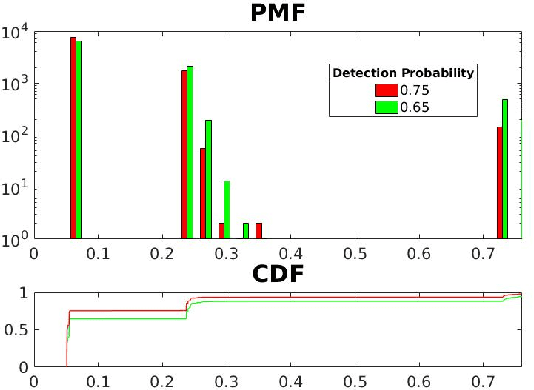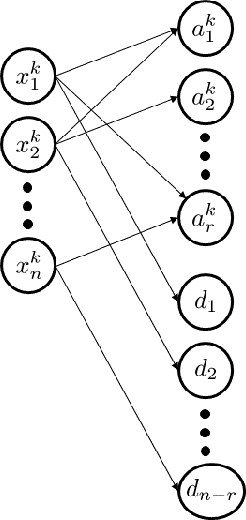An Extended Consideration of Joint Exploration and Tracking: JET
Paper and Code
May 18, 2017



Autonomous exploration and multi-object tracking by a team of agents have traditionally been considered as two separate, yet related, problems which are usually solved in two phases: an exploration phase then a tracking phase. The exploration problem is usually viewed through an information theoretic framework where a robotic agent attempts to gather as much information about the environment or an Object of Interest (OI). Conversely, the tracking problem attempts to maintain precise location information about an OI over time. This work proposes a single framework which enables the multi-robot multi-object problem to be solved simultaneously. A hierarchical architecture is used to coordinate robotic agents in the tracking of multiple OIs while simultaneously allowing the task to remain computationally efficient. The primary contributions of this work are a probabilistic constraint on the tracked OIs' covariances guarantees tracking performance throughout the entire mission. The automatic discovery of new OIs, a seamless transition to guaranteed tracking of discovered OIs, and the automatic balancing of exploration with the requirements of tracking.
 Add to Chrome
Add to Chrome Add to Firefox
Add to Firefox Add to Edge
Add to Edge